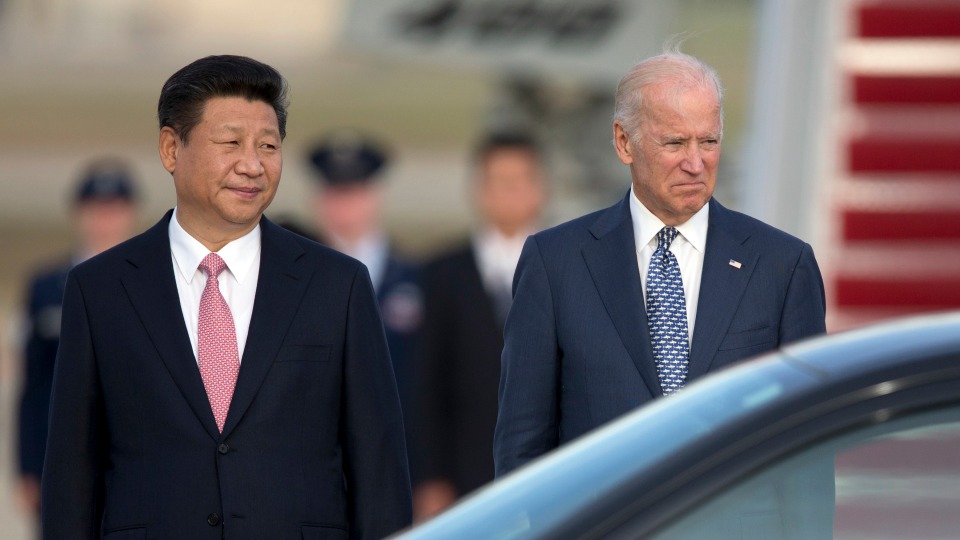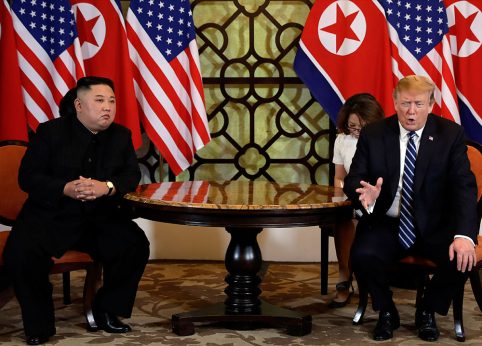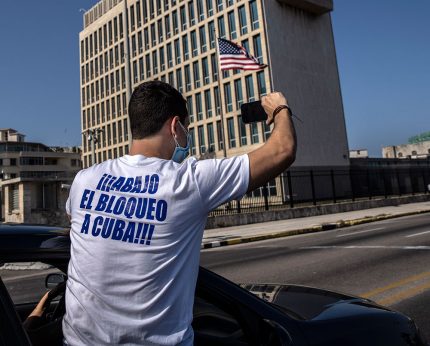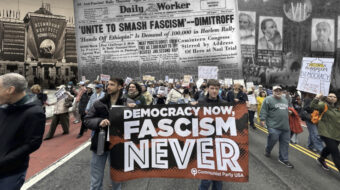
Passing the 100-day mark of President Joe Biden’s administration, one word we hear often is “bold.” From the passage of the American Rescue Plan (to fight the coronavirus), to important changes proposed in the American Jobs Plan (on infrastructure), and his American Families Plan (expand paid family and medical leave, pre-school education, free community college, etc.), the president envisions important changes in several critical areas of daily life.
What we yet see are a lot of “bold” changes in U.S. foreign policy, especially in relations with four major nations—China, Vietnam, Cuba, and North Korea. In many respects, the United States continues strategies forged during the Cold War. After four years of Donald Trump’s “America First” foreign policy, Biden is steering U.S. foreign policy back to its previous channels. In a speech at the State Department in February, he declared, “The message I want the world to hear today: America is back. America is back… As I said in my inaugural address, we will repair our alliances and engage with the world once again, not to meet yesterday’s challenges, but today’s and tomorrow’s.”
But Biden’s idea of “tomorrow’s challenges” sounds quite old-fashioned. He reinforced his position recently at a U.S.-Japan summit, pledging at its conclusion to “renew an Alliance that has become a cornerstone of peace and security in the Indo-Pacific region and around the world.” Among the steps the two countries will take, Japan resolved “to bolster its own national defense capabilities to further strengthen the Alliance and regional security.” For its part, the U.S. agreed to several cosmetic changes in its deployment of troops on Japanese territory.
Generally, what we heard is more of the same old, same old. Chinese actions, they charged, “are inconsistent with the international rules-based order, including the use of economic and other forms of coercion.” This is language that harkens back decades.
The time has come for the U.S. to take bold action and reorient its outdated views on foreign policy, especially in relation to the self-identified socialist countries. This could be done in a number of ways: expanding positive results previously achieved, returning to abandoned or neglected agreements, or starting work towards new understandings.
Here are a few suggestions that might be taken to improve bilateral relations with each nation.
Vietnam
Of these four countries, one can say that Vietnam’s relations with the U.S. are the closest to “normal.” The two maintain full diplomatic relations, and there is growing trade between them. Yet, there is still room for improvement.

In the tensions over control of islands in the South China Sea, the U.S. is trying to play Vietnamese interests against those of China. Vietnam, meanwhile, is trying to maintain a balance between Chinese and Western interests in the region. In 2019, it issued a Defense White Paper based on a policy of “no military alliances, no siding with one country against another, no foreign military bases, and no using force or threatening to use force in international relations.” But, it said, “depending on circumstances and specific conditions, Vietnam will consider developing necessary, appropriate defense and military relations with other countries.” Rather than inserting itself into what is a regional dispute (as former Secretary of State Mike Pompeo did in 2019), the U.S. should avoid any sort of confrontation; it should promote peace and understanding.
Another long-standing problem between Washington and Hanoi is the matter of U.S. reparations stemming from the Vietnam War. In 1973, President Richard Nixon promised North Vietnamese Prime Minister Pham Van Dong aid in the range of $2.25 billion for reconstruction and $1 billion to $1.5 billion for food and commodity aid. Adjusted for inflation, this would be the equivalent of $19.4 billion in 2017.
While Washington has contributed money in the fields of medical and reconstruction assistance, it has never come close to fulfilling Nixon’s promise.
North Korea
The roots of the U.S. dispute with North Korea, officially the Democratic People’s Republic of Korea, or DPRK, go back to the division of the Korean peninsula at the end of World War II. Japan controlled Korea between 1910 and 1945. After the former’s defeat, Soviet troops occupied the northern half of the country and U.S. troops the southern half. By 1950 the two halves had coalesced into two hostile countries, a socialist-oriented north and a capitalist south. Between 1950 and 1953 the United States was able to convince the United Nations to fight a war to exterminate the socialist half. It failed, and in 1953 an armistice was agreed to, but a full peace treaty has never been signed.

In the nearly 70 years since, the U.S. has kept tens of thousands of troops stationed in South Korea. Today, the number is 28,500. During these seven decades, the country has remained deeply divided. Until recently, there were no telephone connections, mail delivery, or visitation between the two halves.
The DPRK has long remained a target of U.S. imperialism, prompting the North Korean government to feel compelled to develop a nuclear weapons capability, and thus leading to endless tension. Trump visited the De-Militarized Zone (DMZ) between the two Koreas in 2019, but the situation in the region has not improved.
One thing that should be done is reviving the Six-Party Talks designed to eliminate North Korea’s nuclear program. Meetings among North Korea, South Korea, China, Japan, Russia, and the U.S. began in 2003 and continued until 2009. Though no comprehensive agreements were reached, some interim steps were taken to reduce tensions. If reconvened, the talks could be the setting for the U.S. to discuss seriously the reduction and eventual withdrawal of its troops from the South. There is no question that such a move would help build mutual trust and confidence among the parties.
Cuba
From the days of the Monroe Doctrine in 1823 to the triumph of the Cuban Revolution in 1959, the U.S. dominated the Cuban economy, an unending source of wealth (some of which was controlled by organized crime syndicates) for American business. The history of U.S.-Cuban relations since 1959 has been one in which the world’s leading imperialist power has tried to strangle the revolutionary process on the island. In the early 1960s, the U.S. severed diplomatic relations and imposed an economic blockade.

It was only during the Obama administration that limited diplomatic relations were restored and some restrictions on tourism and family separation were lifted. Obama visited Havana and met with then President Raúl Castro. This thaw was halted by the Trump administration, and though diplomatic relations remain, the former president reimposed a number of restrictions on bilateral relations.
What Biden must do, as a start, is to return to the status of relations that existed at the end of the Obama administration. But that’s not enough. The most important issue that cries out for change is for the U.S. Congress to end the economic blockade of Cuba, the “embargo.” It serves no one’s interest except for a few aging Cuban exiles in Florida.
In addition, Washington must end the administrative roadblocks that hamper implementation of free and open travel and tourism between the two countries and allow unfettered financial transactions between families. It is also time to implement the agreement that was reached between the Cuban Baseball Federation and Major League Baseball, and the Major League Baseball Players Association. It would provide for an orderly system for Cuban players to play in this country, similar to agreements currently in place for players from Japan, Korea, and Taiwan.
A free and open relationship between two neighboring countries based on mutual respect and non-interference in each other’s affairs is a vital necessity.
China
The rise of China as the number two economic power poses a challenge to U.S. hegemony arguably without precedent—possibly surpassing even the economic influence of the Soviet Union after World War II.
Between 2017 and 2021, Trump took an aggressive stance towards China, including the launch of a trade war between the two powers. There were also steps taken by the U.S. government designed to blunt China’s new status in the world, such as restricting the activities of Chinese companies like tech giant Huawei.
Though repeatedly stating it has no desire to begin a new Cold War, the U.S. continues to pursue policies that will contain and isolate China’s influence around the world. A recent example was the meeting in March 2021 of Australia, India, Japan, and the U.S. (dubbed “The Quad”). The group’s final communiqué defined its purpose to be the “promoting [of] a free, open rules-based order…to advance security and prosperity and counter threats…in the Indo-Pacific and beyond.” This statement reinforces Biden’s remarks at the State Department in February, when he said, “American leadership must meet this new moment of advancing authoritarianism, including the growing ambitions of China to rival the United States.”
Again, this anti-China focus is hidden behind the same catch-words used repeatedly by the U.S. to maintain its dominant place in the world economic and political order. Unfortunately, none of these policies will result in a world where the common folk will lead safer, more peaceful lives.
In contrast, there is much that the U.S. could gain by working with the Chinese leadership. President Xi Jinping laid out his vision of international relations in a speech he gave at the World Economic Forum, the ultimate gathering of the world capitalist class, in Davos in January.
He spoke about what he saw as the four major tasks facing a world made up of many diverse peoples and economic orientations, including those who are following the socialist path to national development. They include:
- Increasing economic policy coordination to jointly promote strong, sustainable, balanced, and inclusive growth
- Abandoning ideological prejudice and following a path of peaceful coexistence, mutual benefit, and win-win cooperation
- Closing the divide between developed and developing countries and jointly bringing about growth and prosperity for all
- Cooperating against global challenges and jointly creating “a better future for humanity.”
The Chinese president closed his remarks by saying, “There is only one Earth and one shared future for humanity. As we cope with the current crisis and endeavor to make a better day for everyone, we need to stand united and work together.”
These are important ideas, words which the Biden administration ought to take seriously. It’s time to break from the worn-out concepts that have driven U.S. relations with socialist societies since 1917. It is time to recenter our foreign policy in ways that benefit not just the capitalist class, but the people of the world.
As with all op-eds published by People’s World, this article reflects the opinions of its author.










